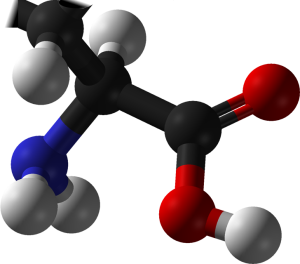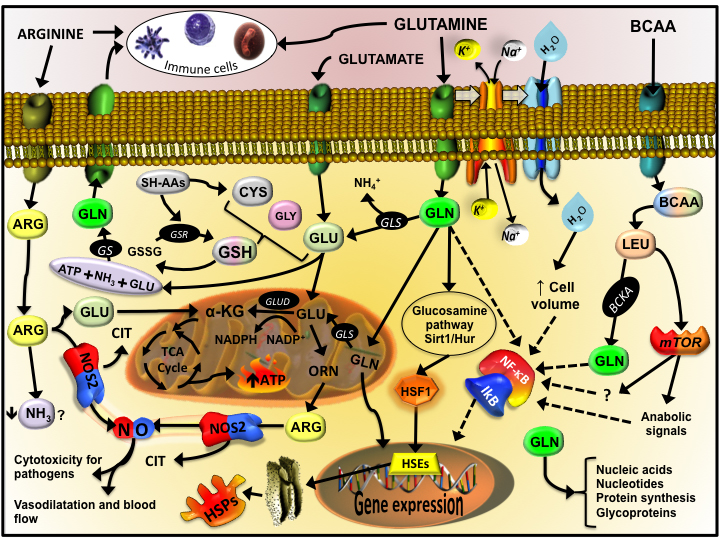 Whether you’re a dedicated gym rat or someone who’s just started working out, chances are that you’ve heard of nutritional supplements. Things like whey protein and creatine are important for athletic development. If you’ve ever seen someone lugging around a giant plastic bottle of pink liquid at the gym, that’s a supplement. You can also get supplements at health food stores, gyms, and online. And while supplements aren’t necessary, a lot of people swear by them. Today, we’re going to talk about one of the newest and trendiest supplements around, BCAA. We’ll discuss just what exactly BCAA is, the supposed benefits, how to buy, and finally, whether or not you’ll be seeing results. By the end of this article, you may not think that BCAA is the best idea for you, but you’ll definitely be informed about everything you need to know.
Whether you’re a dedicated gym rat or someone who’s just started working out, chances are that you’ve heard of nutritional supplements. Things like whey protein and creatine are important for athletic development. If you’ve ever seen someone lugging around a giant plastic bottle of pink liquid at the gym, that’s a supplement. You can also get supplements at health food stores, gyms, and online. And while supplements aren’t necessary, a lot of people swear by them. Today, we’re going to talk about one of the newest and trendiest supplements around, BCAA. We’ll discuss just what exactly BCAA is, the supposed benefits, how to buy, and finally, whether or not you’ll be seeing results. By the end of this article, you may not think that BCAA is the best idea for you, but you’ll definitely be informed about everything you need to know.
So, What IS BCAA, Exactly?
BCAAs, or branched chain amino acids are named for the molecular structure. They include vital amino acids, such as leucine and isoleucine, and they can be taken in supplement form before or during an intense workout! Athletes swear by their effectiveness in performance, endurance, and for muscle repair after your workouts. In your body, there are 20 total different types of amino acids. The line of thinking behind using BCAAs as a supplement is that if you take it, your body is more easily able to replenish itself. This can make recovering from workouts—what is painful for some—a whole new level of amazing. Think about it; what if you were able to leave the gym feeling better than you did when you came in? What if a workout only gave you more energy, instead of weighing you down and tiring you out? Well, the answer lies within BCAAs. Although, as you’re about to read, they’re definitely more useful for some than for others.
How Do They Work?

Amino acids travel to the liver by way of food. Then, they’re broken down and used as “fuel.” Think of the car analogy—amino acids are like gas. If you don’t get them, you won’t be able to keep going, much like a car can’t go when it’s out of fuel. Sometimes, amino acids are used for muscle repair instead of fuel. This way, you can use them before, during, and after a workout! When you’re exercising, you’ll feel fatigue after not too long, even if you’re a practiced athlete. Your body will work to send signals to the brain, telling you that your muscles are getting sore and that soon, you’ll need to take a break. When you take BCAAs, they work to convince your brain that you can still keep going, and that you don’t need to feel any fatigue. BCAAs are also known to help with muscle soreness, and often-times if you have a personal trainer, he’ll introduce BCAAs to you for a post-workout recovery. Leucine, one of the vital acids in BCAA, directly stimulates muscular growth! Talk about intense powers. Isoleucine improves glucose metabolism and increases glucose uptake in the muscles. Sometimes, BCAAs will also include valine, which can assist leucine and isoleucine.
Found In Natural Foods!
However, you don’t have to take BCAAs to get high amounts of these amino acids. You can also find them in proteins, such as meat, eggs, and dairy products. As long as whatever you’re consuming has whey protein, chances are that it contains a great deal of BCAAs. And while a lot of research on the effects of BCAAs have been done, these studies have primarily been limited to subjects who don’t always eat a lot of meat or protein in their diet. So technically, it would be possible to assume that these individuals are more likely to be affected by a BCAA supplement than anyone who manages to eat a diverse and protein-rich diet. In fact, a separate study has shown than BCAAs are completely unnecessary for people who eat between 1 and 1.5k/kg of protein per day. If you do the research, you’ll discover that such a protein intake is easily accomplished, and thusly you shouldn’t really need supplements.
Benefits!
So why are BCAAs still used so frequently by so many gym goers? Well, there’s more than one theory for that. For starters, it’s been theorized that BCAA can still provide anti-fatigue effects to those who haven’t been working out for very long. So if you’ve just started going, BCAAs can make a difference in how much you can do at first. However if you’ve been on a regimen for a while, don’t expect to see any new results due to BCAA intake. Obviously, this isn’t because of any scientific effect on the body, it’s just because since fatigue sets in earlier in people who aren’t as active and fit, anti-fatigue will affect those people more.
Besides, if you get BCAAs from food, your body is much more likely to find them satisfying. You won’t have weird cravings, and you’ll be getting a healthy and balanced diet. Even if the anti-fatigue claims are tempting, keep in mind that you’ll naturally develop a tolerance to fatigue after working out for a while! And that’s way more satisfying that supplement use.
A Word of Caution
If you’re planning to purchase a BCAA supplement, you’ll definitely want to buy from a trusted source. Even though BCAAs are not the miracle supplement that they’re touted to be, that’s no excuse to buy a poor product. Always buy from a seller with a known guarantee, or buy from a trusted nutrition store. You may even want to talk with a few experts before buying. And be honest about your level of fitness; it’s not going to do you any good to lie about how active you really are.
So even though we’ve pretty much debunked BCAAs as a good idea, they won’t harm you. And if you’re loathe to the idea of starting a gym routine, they can act as a kick in the rear. Just remember to eat a balanced diet, and you won’t even need their supposed benefits. Now get out there, and burn some energy!
Leave a Reply